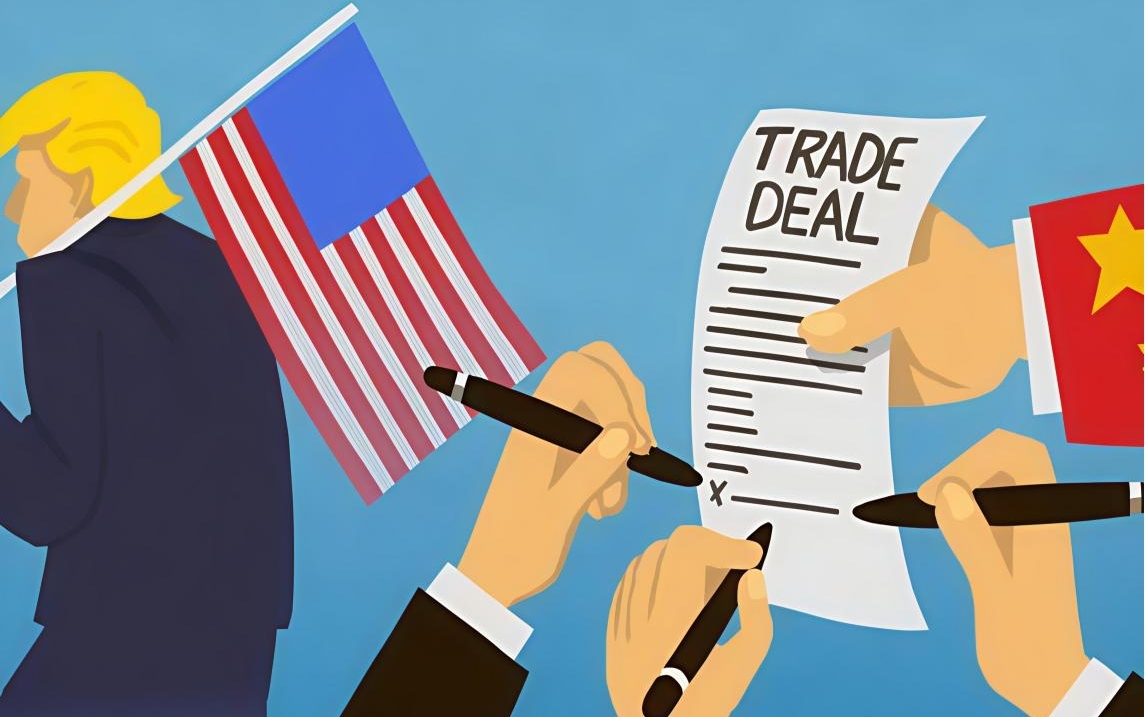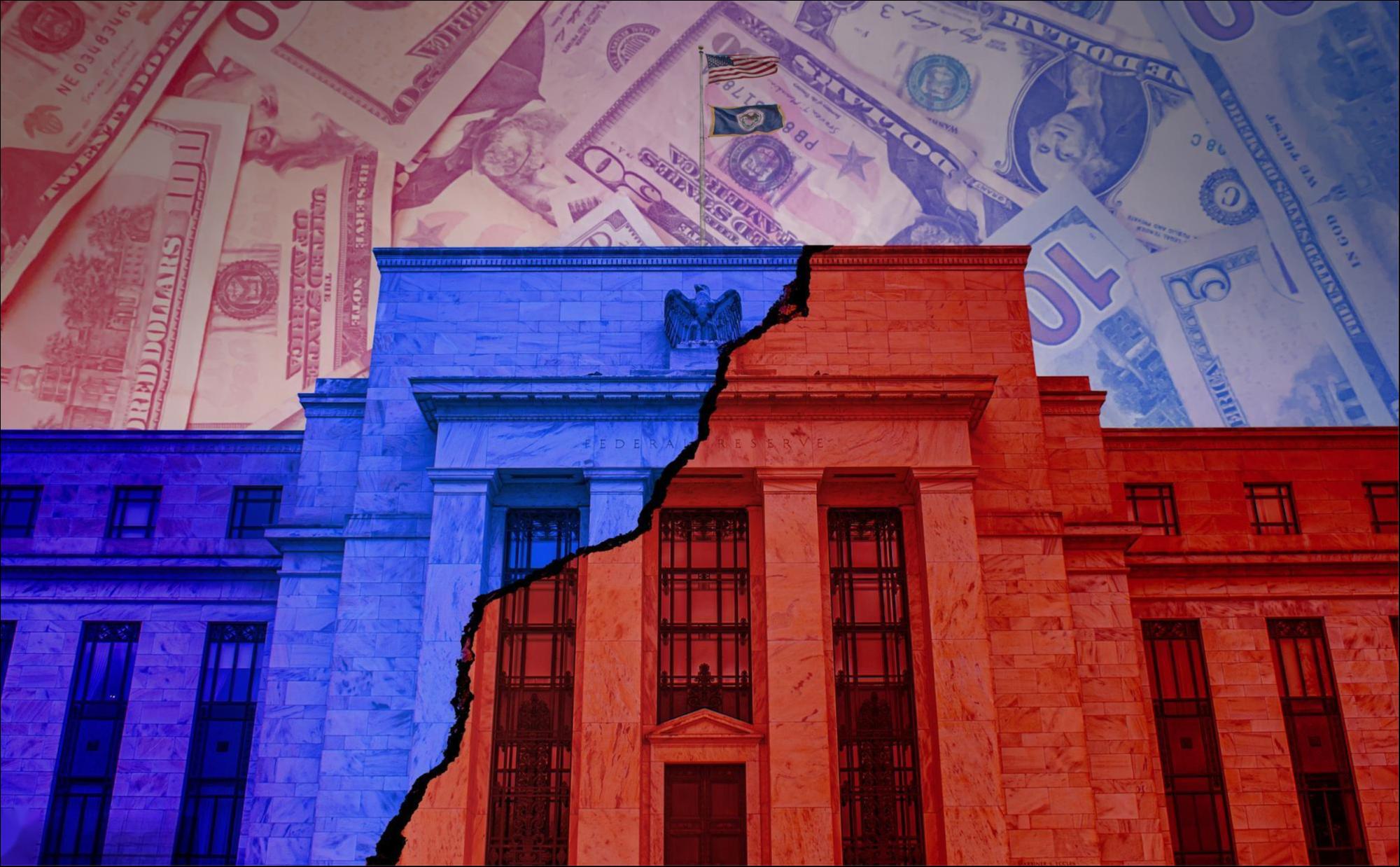
On July 4, 2025, the eve of Independence Day in the United States, Trump dropped a "tariff bomb" on global trade in Iowa: announcing unilateral tariffs of 10% -70% on countries that have not reached a trade agreement from August 1. The first batch of 12 tariff notices have been sent out in lightning. China, the European Union, Japan, India and other economies are listed as "key pressure targets", with Japan facing a comprehensive tax rate of over 35%. As the deadline for negotiations on July 9th approaches, the global trading system is on the brink of full-scale confrontation.
The financial market responded to Trump's tariff attack with severe volatility. Before the US market closed on July 4th, Dow Jones futures plummeted 2.3%, Nasdaq futures fell 3.1%, and technology stocks were the hardest hit areas for selling. The foreign exchange market simultaneously stirred up turbulent waves - the offshore RMB/USD exchange rate surged above the 6.8 mark, and the Euro/USD exchange rate broke through the 1.15 mark, setting a new high since 2023. The bond market also sounded the alarm: the yield of the US 10-year treasury bond bond soared to 4.8%, a peak in nearly nine months, and the market's fear of high tariffs driving up inflation and forcing the Federal Reserve to maintain high interest rates for a long time became clear. This turbulence was already foreshadowed: four months ago, when the United States announced "equivalent tariffs," global stock markets evaporated $6.5 trillion in market value in two days, and gold soared to a historical peak of $3168 per ounce due to safe haven demand.
Japan is under particularly heavy pressure in the tariff storm. Prime Minister Shigeru Ishiba has repeatedly called for this to be a "national crisis level situation" in parliament, and on July 4th, he made a more firm statement that "we will never accept unilateral tariffs". The unease in the Japanese economy stems from cold numbers: the automotive industry accounts for 50% of Japan's manufacturing output, contributes about 8% to GDP, and supports 8% of the country's employment opportunities. If cars and parts are subject to tariffs of more than 25%, this alone will reduce exports to the United States by $12 billion, and Nomura Research Institute warns that it may directly wipe out Japan's annual economic growth of 0.1%. Although car companies such as Toyota and Mazda have accelerated the transfer of production lines to the United States to avoid tariffs, the pain of industrial chain restructuring has caused continuous heavy losses in the Tokyo stock market, with the Nikkei 225 index plummeting 7.83% in a single week, becoming the worst performing market in Asia.
The global trade map is rapidly restructuring under the impact of tariffs. The European Commission urgently declares that if the United States insists on a 70% tariff, it will immediately impose retaliatory tariffs on $40 billion worth of American goods; The Chinese Ministry of Commerce vows to "take all necessary measures"; Even traditional ally Canada has publicly accused the United States of "betraying the spirit of free trade". The enterprise supply chain is forced to undergo a 'big migration' - the German BMW Group suspends the expansion of factories in the United States and shifts to Mexico and China to lay out production capacity; TSMC is actively considering building a new wafer fab in Germany; Although Vietnam has raised tariffs from 46% to 20%, it has been forced to strengthen border inspections to prevent it from becoming a transit point for Sino US trade. The International Monetary Fund predicts that the growth rate of global commodity trade volume will sharply decline from 2.9% in 2024 to 1.1% in 2025, and North America may even experience a contraction of over 10%.
The United States is not the winner of the tariff war. Trump claims that tariffs will "rebalance trade relations" and drive manufacturing back, but economic laws give a ruthless answer: Yale University research shows that 91% of the cost of imposing tariffs is borne by American businesses and consumers. The American Tax Policy Center estimates that the annual tax burden of ordinary families will surge by $2940, and the Brookings Institution estimates that 23 million Americans may slip to the poverty line due to an increase in annual expenditure of $5400. Bloomberg analysis points out that the full implementation of a 70% tariff will cause the average tax rate on imported goods in the United States to jump from 3% before Trump took office to 20%, directly pushing up the consumer price index by 3-5 percentage points. And the lessons of history are shocking: the 25% tariff on China in 2018 led to a 0.5 percentage point decline in US GDP growth and a reduction of 240000 manufacturing jobs; Nowadays, the 70% tariff has a wider range of damage and higher tax rates. At a sensitive moment when inflation is still at a high level of 3.2%, it is extremely easy to detonate a "stagflation" nuclear bomb.
With only a few dozen hours left until the deadline for negotiations on July 9th, the world is standing on the edge of a cliff. The Smoot Hawley Tariff Act of 1930 had halved global trade, and the current tariff intensity has reached 2.3 times that of the Act. The warning of Nobel laureate in economics, Stiglitz, is now being fulfilled: "When major powers view tariffs as weapons, they destroy not only trade, but also the confidence of humanity to work together to solve problems." In this game without a winner, political calculations are forcing the global market to pay a heavy price for unilateralism - the World Trade Organization warns that global trade volume may shrink by 18%, and $3.8 trillion in output is at risk of evaporating. As tariff barriers continue to rise in panic, the spirit of multilateral cooperation established at the Bretton Woods Conference in 1944 is gradually dissipating in the smoke of trade wars.

Recently, US Treasury Secretary Mnuchin publicly stated that the selection process for the next chair of the Federal Reserve has been initiated.
Recently, US Treasury Secretary Mnuchin publicly stated tha…
At the dawn of 2026, the United States launched a military …
From the stiff step when it first debuted in 2022 to demons…
"On the early morning of January3,2026, the United States l…
"We absolutely need Greenland," Trump's straightforward sta…
On January 3rd, the US Special Forces launched a surprise a…